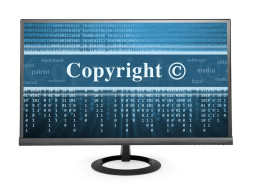
Insights on Copyright licensing and enforcement policy for an increasingly borderless digital environment
Presentation by Cordel Green Executive Director of the Broadcasting Commission – Jamaica
At International Institute of Communications (IIC) Annual Conference, Vienna, October 9, 2014
[THIS IS INTENDED AS A GUIDE TO THE PANEL AND IS NOT A COMPLETE PAPER. IT SHOULD NOT BE QUOTED WITHOUT THE AUTHOR’S PERMISSION],/
Introduction
The background to this discussion is that digital technology is having such an axial effect, that the efficacy of copyright as a determinant of innovation is becoming questionable. At its core, copyright is about owning what you create, and an entitlement to returns from investing in something (Juden, 2010, 99). But the post-web era is characterised by streams of innovation – a continuum of linked multiple points of originality and collaboration, and of ‘networked individualism (Wellman, 2002). In addition, innovation is increasingly making its way from the consumer to enterprise. This is blurring the line of demarcation between innovator/originator/consumer.
This creative ecology calls for a re-thinking of copyright. In the formative years of the copyright system, enterprise was stronger than consumer and by the rule of strength, copyright was framed to favour enterprise. But, commerce is a by-product of art and not vice-versa. Copyright has created an imbalance is this relationship and rebalancing is necessary.
Different approaches are therefore required to balance incentivizing creativity, on the one hand, and ensuring equity in an increasingly creative digital network of peoples, and dispersion of creative enterprise, on the other.
The Jamaican Case: Access to Cable Channels
Cable television operators and broadcasters operate within a regulatory framework that ensures that their output has been honestly acquired, is not slanderous or indecent, and meets specified technical quality standards. This means that they are only allowed to transmit programming for which they have acquired licences. The Broadcasting Commission takes its responsibilities to enforce the licensing rules very seriously, and it has, on occasion, suspended cable licences, made recommendations for non-renewal of cable licences, found numerous cable and broadcasting entities in breach of their licences, ordered the removal of cable channels, ordered the blocking of programmes that infringed copyright, and recommended the introduction of hefty financial sanctions for copyright breaches.
The Commission believes, however, that it is much better to prevent problems than to punish offenders. So the Commission maintains an open channel of communication with rights holders, both locally and internationally, and has encouraged the development of beneficial licensing and specific access arrangements for the English speaking Caribbean (such as that offered by HBO). The Broadcasting Commission is also engaged with the Ministry of Foreign Affairs and Foreign Trade with regard to the issue of access to programming and licensing within the framework of Jamaica’s bilateral and multilateral agreements on trade in services.
In addition to these core activities, the Commission carries out regular copyright audits, and maintains what is probably the most comprehensive data in the Caribbean region on copyright matters pertaining to the cable and broadcasting sector. It is true that compliance with regard to copyright in Jamaica is not always as good as it should be, but this is not because of any lack of regulatory concern and action in Jamaica. On the contrary, no other regulator in the Caribbean region comes close to dealing with copyright issues as consistently, practicably, forcefully and on the scale or depth as the Broadcasting Commission of Jamaica.
But this unwavering and relentless drive by the Broadcasting Commission to secure the interest of copyright holders has sometimes fostered confusion and sometimes resentment by Jamaican consumers, particularly in relation to US originated television content. For example, many Jamaicans see no logic in shutting out content from licensed cable services that can easily be accessed via currently unregulated satellite and internet-based substitutes.
Jamaica’s pursuit of copyright compliance therefore comes at a cost. It is evident that the unwillingness or in some cases inability of US channel owners to license their products for the Caribbean region can have the effect of driving up the regulatory costs of copyright enforcement in small island nations, such as Jamaica, and are unfortunately creating unintended incentives for continued copyright breaches.
Realities of the Digital Age
It must therefore be stressed that the issues around programming, access and rights clearance are not at all simplistic and clear-cut, as some public comments have suggested. The real problem is that copyright laws written in a pre-internet age have become increasingly ineffective in a digitally converged environment, in which many forms of information have effectively become free and widely accessible. This is the reality that we have to address, even if there are some who are still trying to protect their interests using increasingly inappropriate models.
However, many people do now recognize that the copyright regime needs to be fundamentally re-thought and reformed. Those who create, distribute and regulate content must adopt approaches that respond to the demands of users of technology for content from everywhere, at any time, on any platform and using any device, whilst of course protecting vulnerable users such as children; shared social values with regard to e.g. what is considered acceptable and decent; creative rights and commercial interests. This is an exceptionally challenging task, but we must balance all of those interests in a manner that does not lead to social conflict, trigger market instability, lead to cultural exclusion, or put Jamaicans on the wrong side of the digital and information revolution. For all these reasons, and more, it is clear that we cannot indefinitely continue to deal with access, licensing and copyright issues with the legal framework that was largely developed in the pre-internet era.
It is clearly becoming increasingly offensive and impracticable for rights holders to continue to license content to one geographical segment of the global population, while restricting or denying others, when in fact there are no fundamental distinctions other than nationality. Not only are consumers understandably angry at being denied access for apparently incomprehensible reasons, but ‘geographic’ licensing, in the context of globally binding copyright treaties, significantly increases the cost of regulatory enforcement in jurisdictions such as Jamaica, which can least afford the pecuniary burdens.
In the absence of a Berne Convention-based compulsory licensing regime, which is disliked by US copyright holders, there is no framework for addressing the issue of content owners who refuse to license distribution of ‘in-demand’ content to territories, such as Jamaica, either because the individual market on the island is considered insignificant or because the channel owner has no rights clearance beyond the US territory. The result is a serious tension between the consumers who demand content and the rights holders, some of whom are reluctant to cede long-established copyright modalities (albeit with doubtful efficacy, given the ease with which technology can now facilitate the circumvention of legal and technical barriers to consumption).
So on one hand, there is a robust regulatory environment that insists on licensed content, but on the other hand, there are channels whose owners refuse to offer distribution in the Caribbean. Opportunistic intermediaries and substitutes therefore try to bridge that gap through over-the-top (OTT) services, unregulated satellite television services, illegal cable operations, and sometimes foreign ‘grey’ content aggregation and signal distribution.
This situation serves nobody’s interest. The rights-holders are losing revenue, consumers are being forced into illegal behaviour, and regulators are obliged to expend scarce resources enforcing laws that are becoming less and less credible. It is therefore very important to re-think the situation and develop better solutions – which also have to comply with international trade law and bilateral agreements.
In the end, it is probably inevitable that the existing frameworks will be rendered obsolete and irrelevant by prosumers, technophiles, by-pass technologies and the emergence of ‘global citizens’ with strong, non-national world-views about rights of access to broadcasting and digital content. It is therefore important that a new regulatory framework is developed in time.
Simplify the licensing regime
This analysis is shared by Richard Hooper, the former Deputy Chairman of UK’s communications regulator, Ofcom, who is actively seeking to simplify global copyright licensing. The existing regimes are criticized by many as being overly pro rights-holder and for seemingly sidelining the licensee or consumer. Mr. Hooper has argued that in the age of digital convergence, where the traditional content provider is quickly being replaced by a “digital emporium” (i.e. the internet), there needs to be a different approach to copyright licensing and protection. A simpler and better licensing regime, he argues, will lead to an increase in the range and quality of digital services available and a resulting reduction in copyright infringement; an increase in revenue for the creative industries and create opportunities for new and more efficient delivery and distribution channels.
The way forward
There is little serious argument about the importance of copyright and the case for focused attention to compliance; most creators of content want to get due recognition and reward for their work. But policy makers and regulators, across the globe, must be increasingly practical and judicious in crafting approaches that fit with these new times, and providing durable solutions. It is likely that the way forward is going to involve simplifying the access and licensing regime for content, across geographical boundaries, devices and platforms, as this would unlock the benefits of fair trade in audio-visual services.
(419)







